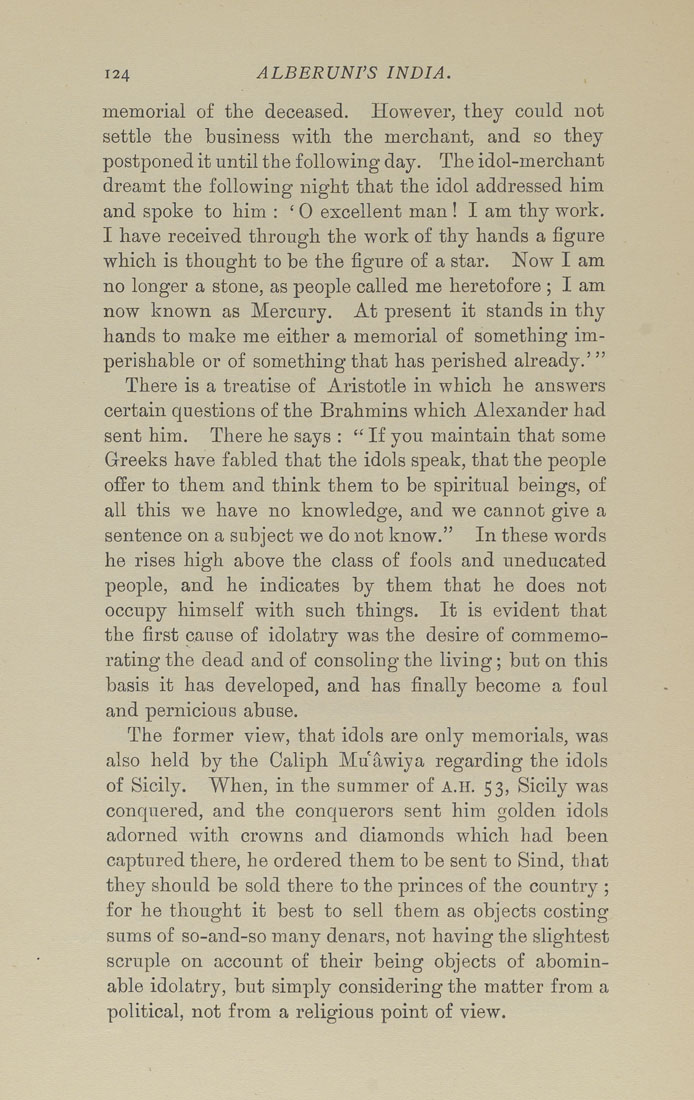Bīrūnī, Muḥammad ibn Aḥmad, Alberuni's India (v. 1)
(London : Kegan Paul, Trench, Trübner & Co., 1910.)
|
||
|
|
|
|
| Page 124 |

124 ALBERUNI'S INDIA. memorial of the deceased. However, they could not settle the business with the merchant, and so they postponed it until the following day. The idol-merchant dreamt the following night that the idol addressed him and spoke to him : ' 0 excellent man ! I am thy work. I have received through the work of thy hands a figure which is thought to be the figure of a star. Now I am no longer a stone, as people called me heretofore ; I am now known as Mercury. At present it stands in thy hands to make me either a memorial of something im¬ perishable or of something that has perished already.' " There is a treatise of Aristotle in which he answers certain questions of the Brahmins which Alexander had sent him. There he says : " If you maintain that some Greeks have fabled that the idols speak, that the people offer to them and think them to be spiritual beings, of all this we have no knowledge, and we cannot give a sentence on a subject we do not know." In these words he rises high above the class of fools and uneducated people, and he indicates by them that he does not occupy himself with such things. It is evident that the first cause of idolatry was the desire of commemo¬ rating the dead and of consoling the living; but on this basis it has developed, and has finally become a foul and pernicious abuse. The former view, that idols are only memorials, was also held by the Caliph Muawiya regarding the idols of Sicily. When, in the summer of A.H. 53, Sicily was conquered, and the conquerors sent him golden idols adorned with crowns and diamonds which had been captured there, he ordered them to be sent to Sind, that they should be sold there to the princes of the country ; for he thought it best to sell them as objects costing sums of so-and-so many denars, not having the slightest scruple on account of their being objects of abomin¬ able idolatry, but simply considering the matter from a political, not from a religious point of view. |
| Page 124 |







